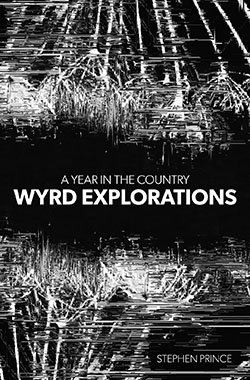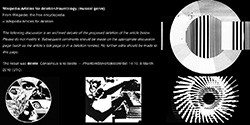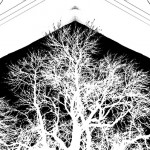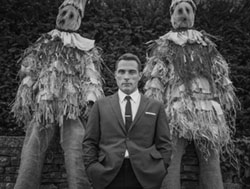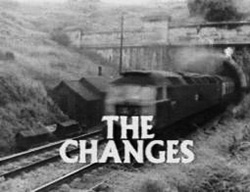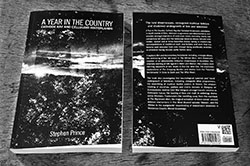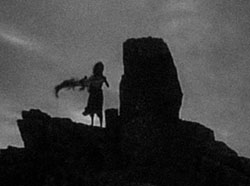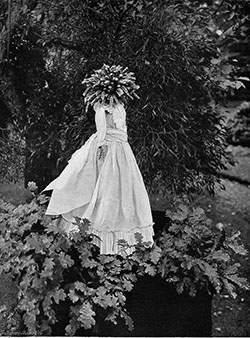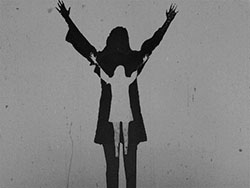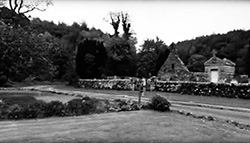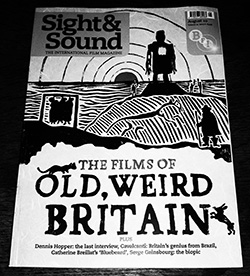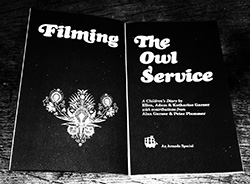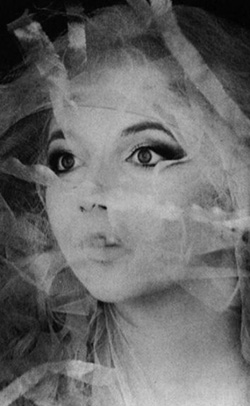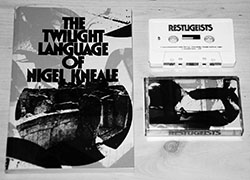 Trails and Influences: Electronic Ether. Case #25/52.
Trails and Influences: Electronic Ether. Case #25/52.
I have wandered why folk music and culture? Why have I been drawn to it and why is A Year In The Country in quite a large part focused on it?
It’s not been a conscious thing but I think as this year-long journey winds it way I’m starting to put together the pieces.
Rob Young, author of Electric Eden, has discussed the connection between such music/culture and utopian impulses and desires and how there is a connection to historic acts of land enclosure/clearance and I think that has played a not considerable part in me being drawn to such things:
“…I think the industrial revolution has much to do with it – beginning around 1760, when a Parliamentary act called ‘Inclosure’ forcibly removed common lands from the folk and scooped them into private ownership. That pushed many agricultural workers towards the new cities and factories where the only remaining employment opportunities lay. This displacement is at the bottom of so much of the British empathy with the countryside, I believe, as so much utopian thought and music here seems to desire to tap into folk memories of an unsullied rural state of mind which now appears like a golden age. Surviving relics from the world before that industrial ‘Fall’ are revered: old buildings, texts, songs, etc, are like talismans to be treasured, as a connective chain to the past.”
Acts of Enclosure? Hmmm, that rings a bell…
As the years have gone by I have found myself priced out of my own land; the cost of putting a roof over your head (in terms of the ever upward path of rental prices), of keeping the lights on and the wolves from the door seems to quietly, gradually be removing a certain less material wealth directed way of life out of the cities and in particular the city centres of this fair isle.
 If you’re not driven by such counting the gold coins and pieces of silver aims in a particular way then the space needed for the creation of more wayward forms of culture has become a hard(er) path to follow and the resulting pathways have led me away from the hearts of cities and towns. (See also Mark Fisher’s comments on such things via Day #163/365).
If you’re not driven by such counting the gold coins and pieces of silver aims in a particular way then the space needed for the creation of more wayward forms of culture has become a hard(er) path to follow and the resulting pathways have led me away from the hearts of cities and towns. (See also Mark Fisher’s comments on such things via Day #163/365).
Although I think I enjoy living amongst the fields, there is an element of choice being taken away and of things reverting to older forms of wealth/class division; it is a form of social and economic clearing out and exclusion, a removal of access to the clustering and critical mass of population that is sometimes required for cultural forms to develop and take hold.
 In a way this could be considered to be a form of enclosure, the mirror image of that earlier 18th century version: this time it’s non-acts/the ending of acts of Parliamentary regulation which have in part caused it (removing statutory rent control or regulation for example), rather than overt legislation and the “common people” are being removed from the inner cities rather than forced into them.
In a way this could be considered to be a form of enclosure, the mirror image of that earlier 18th century version: this time it’s non-acts/the ending of acts of Parliamentary regulation which have in part caused it (removing statutory rent control or regulation for example), rather than overt legislation and the “common people” are being removed from the inner cities rather than forced into them.
But as I say this is being done quietly and there seems to be little viable venue or direction for a consideration that maybe a society where a handbag can cost more than a house did but a few years ago is probably not one which… well, doesn’t have it’s head up its ass and in the sand.
(I don’t think that’s a political left/right consideration, that’s just common sense that a society where that is the case without overly demurring about it is one that is out of kilter.)
I think also semi-consciously my removing myself from urban environments has been a side effect of a need to place filters between myself and the overload of culture and input which can occur more easily in such environments (although now of course there are small and not so small boxes of zeros and ones that can offer up over-gorging of such things sat in the corner of all abodes even out amongst the fields)… you rarely see billboards in such parts of the world, the headlines and shiny covers of publications and periodicals can’t catch and enter your eye from every corner… and something I thought about the other day, there’s an interesting lack of surveillance and recording out in country towns compared to their city brethren.

(The battle against the restrictions that the Acts of Enclosure put in place have rumbled forward through history.)
I’m not trying to say that all cities and compact population environments are inherently evil nor that the countryside and country living is all green grassed idyll… nor that pastoral/folk culture is part of some dichotomous good/bad pathway with urban/pop culture…
More just thinking (typing) aloud as I try to connect the dots.
The rhythms and cadences of the music that makes sense beyond your youth and out amongst the fields is different, the stories that folk music, certain areas of hauntology and pastoral/subterannean ambient music tell seem to fit living amongst such lands more… and I know the stories of pop/alternative culture a little too well and they have been told, retold and used too often by the mainstream and non-mainstream media, until for me their stories nolonger carry the meanings and connections they once did.
(I use the word pop in its root Roman sense of populi – and to quote myself quoting Rob Young – to mean culture “derived from centrally controlled, regimented, urban communities which were entertained/appeased/distracted by mass spectacle”; see Day #40/365 for more on such things and wanders amongst the wald.)
 Since the advent and popularity of more urban based pop music/culture, what has been called folk music/culture has only periodically been popular/considered acceptable for wider marketing/consumption (the high summer of folk rock in the late 1960/early-to mid 1970s, the interest in freak folk in the earlier-to-mid 2000s) and as Jeanette Leech says in her introduction to the Weirdlore album:
Since the advent and popularity of more urban based pop music/culture, what has been called folk music/culture has only periodically been popular/considered acceptable for wider marketing/consumption (the high summer of folk rock in the late 1960/early-to mid 1970s, the interest in freak folk in the earlier-to-mid 2000s) and as Jeanette Leech says in her introduction to the Weirdlore album:
“…when light is not on a garden, many plants will wither. But others won’t. They will grow in crazy, warped, hardy new strains. It’s time to feed from the soil instead of the sunlight.”
Hmmm. I’ve always tended to think of the direct sunlight of media and mass attention as a double-edged sword for subcultures, often not giving things the space they need to grow and develop fully…
…which brings me back to why folk music/culture; this sense of it being a cultural form which has been left alone, one which has been allowed to gain nourishment from the earth rather than the rays for me means that the space around it feels less regulated (at least in the areas I’ve been searching and researching); there is still some space to move and dream around such things, which may be less so in other areas of culture. You can still walk these “wild woods” a little more freely.
Visit Electric Eden in the pages of A Year In The Country here and here.
Visit Weirdlore around these parts here.
The right to live amongst the common land around these parts here.
William Gibson’s comments on the effects of the direct sunlight of attention, subcultures as places where post-industrial societies go to dream and their premature plucking can be visited via Day #162/365.
Peruse the full interview with Rob Young here and wander along a multitude of pathways here.




